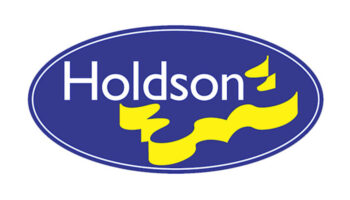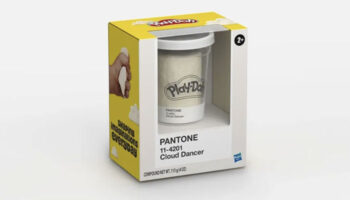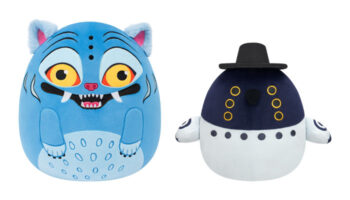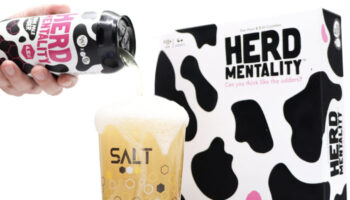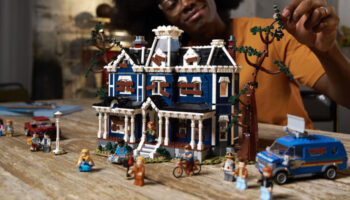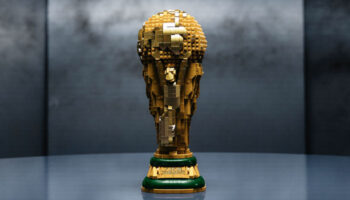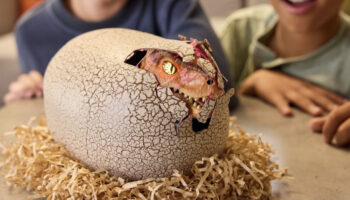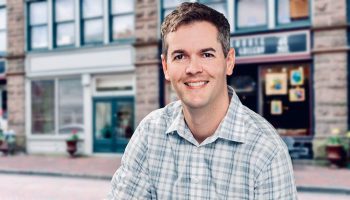Pulling together, lifting up and building partnerships: a heartfelt conversation with David Vonner

David Vonner… It’s been too long! Before we talk about your new partnership, I want to ask about the much-ballyhooed kidult market… As a designer, are you more consciously designing for that market? Or is it business as usual?
Quite honestly, I don’t like the term kidult because it silos us, if you know what I mean. When I was developing toys with Marvel, I hated the fact that we had to have this difference between kid and adult collectors. Because I felt that I was a kid that enjoyed these brands and was impacted by these movies and these toys… And as an adult, I still enjoyed them.
Because you were a huge fan of comics as a youngster?
Oh, absolutely – and more than that… I developed my moral code from reading comic books. I learned to understand the value of property from having them; I learned to take care of my things by taking care of my toys and my comics; from not wanting them damaged. And so I not only gained an appreciation for having my own, but also understood the value of the things that others have.
So yes… All those things came from comic books and toys; from watching shows like the Six Million Dollar Man – and from wanting to be the hero… I wanted to be the good guy! Now when I hear the term kidult, I kind of feel as though it’s another way to marginalise and silo us when it’s actually quite a beautiful thing to just be a collector.

Fascinating answer. So now… You’ve been incredibly busy overseas recently… Doing what?
Putting things together, working on different projects, creating different partnerships! It felt to me like – after the pandemic, and with the change in administration and the tariffs – like a lot of people have been looking at that as a big problem…The sky is falling, you know?! But for me, I looked at it as an opportunity to find a solution. So that’s what I’ve been aiming for. And ultimately, I came upon a factory in Colombia, which has a totally different tariff rate from China.
When I looked into that, I felt it could be a really solid opportunity to get around the tariff situation. Not only that, but also to have a means and a platform for independent toy creators. They can use it as a hub to create product and not have to worry about such high costs to produce it, or the higher tariffs. And they can use it as an opportunity to have what the major companies have.
And that’s the partnership with IP ImaginArte in Colombia… And what is it that drew you to them? And to Colombia? And I know you won’t say, “Smuggling drugs!”
Well, see, that’s the thing… I didn’t even know that Colombia had the means to produce toys. But a friend of mine produced his six-inch collectible action figures there. I saw them, and I was like, “Man, these are pretty good!” Then I did some research and saw they had the Sega licence where they do Sonic.
They also did the 100th anniversary of Warner Bros. So they did Wile E. Coyote as Batman; they blended DC Comics with Looney Tunes which is quite a prestige range.
Right. They wouldn’t have taken a gamble on that!
Right. So I saw how well they did those… And it reminded me of my Toy Biz days in the late ’90s. Back then, we were finding our footing and experimenting with different factory partners to see what they could do. We also explored different factories to see what they could do at Hasbro when we had the Marvel license…
In the beginning, of course, there were stumbles – but our being entrenched with the factory and guiding them creatively, and communication and manufacturing-wise, we wound up turning the ship… And they wound up creating good products. I saw that as an opportunity. I also saw how they were kind of being bashed on social media by some of their competitors… Some consumers, but mainly other competitors. I viewed that as not so much of a critique on what they were doing so much as an attack on their business.

Right…
So with that, I thought: let me step back and see if I can actually make this an opportunity because I thought that what they did was pretty good. They just needed some extra help from entities that have the knowledge to be able to offer it. And I’ve been through that situation; I understand what they went through. Also, in order for the adult-collectible business to thrive and succeed, I think we need to be able to work together as opposed to kind of bashing each other, you know?
I do! I’ve been talking about this recently, actually… But go on!
Because competition is always great. Competition spurs more success in business. There are times, though, when you just feel the criticism is coming from a different place. Anyway, I reached out to them and they were very appreciative. They were big fans of the things that I’ve done and we built a rapport.
Also, they invited me down there to view the factory and to meet their supply-chain partners. So I met everyone from top to bottom: from the CEOs all the way down; I walked all the floors. And that was one of the most amazing experiences I’ve ever had.
So you were on something of a mission in your head… And that visit really solidified things?
Right. Something else that’s important is what you said in the beginning: what drew me down to Colombia – other than smuggling drugs? And I think that that is a common misconception. They’ve actually worked very hard to be able to sidestep those old perceptions, those old stereotypes. And I think another misconception is that everything should be done in China – because that isn’t true. There’re other countries and other means that let you produce and manufacture goods as well.
This is one of the reasons I love talking to you, David. The potential is always there to discuss something deeper. And I was moved just now because a good number of people – if they saw a factory getting knocked online – would pile in on that – or just keep quiet. But your instinct was to see how you could help. To me, that’s extraordinary. What compelled you to do that?
Well, honestly, my motto is ‘For the culture.’ That’s very joining; it’s about bringing in different cultures. I felt this was like an amazing opportunity to do something for the culture; to bridge the gap between Colombia and the rest of the world.

Bridge the gap?
To bridge the cultural gap between independent creators and the means by which they can produce product outside of China, and also to bridge the gap in the business sense… Maybe from this cultural aspect of inclusion – to actually find a way to be inclusive and have this factory be inclusive with everyone else. And then maybe we can surround ourselves: to be a better manufacturer, a better designer, to give ourselves opportunities because we are all we’ve got… We’re all we’ve got, but we’re all we need, right?
In what way, David?
When you step back and look at it, we have – for example – designers and photographers and model makers and 3D sculptors and everyone else that can do some really fantastic stuff. And now we have new manufacturing partners… New shipping partners. And we have independent retailers and IP that isn’t tied to major corporations and movie studios, for example. So if we develop what we have, then that’s all we really need in order to foster success. And to have that is about bringing these cultures together.
Amazing. You know, I’ll just say this before we carry on: I’m writing an opinion piece, which I’ll link to here [ XXX ], on Hostile Attribution Bias… How some people, subconsciously, always think the worst of others. They can’t help but be snide or aggressive and accusatory; they assume you mean them harm without any evidence. It’s only relevant here because you seem to have the Anti-Hostile Attribution bias! You’re always looking to lift everyone up!
Thank you, Deej. But you know what? That’s what toys are supposed to do! Right? Play is one of the few things that universally joins us together. So why does there have to be such a narrow focus, or a negativity, on who actually makes the toys? Or who actually develops them?
Also, going back to that misconception about Colombia… When I was there meeting with all the factories, it was just so beautiful. The people there were absolutely amazing. The food was amazing. The air was so fresh and I found out that they’re really environmentally conscious. I stayed at a hotel on a farm on a mountain – there were cows everywhere because it’s a high dairy business there. But it didn’t smell like farmland smells in the US! Everything just smelled natural and fresh; I ate natural and fresh – and I’m very conscious about my health anyway! But this was another level.

And you were saying about the people just before we went on the record…
Right. Meeting my translator and the business owners, particularly those at ImaginArte, was a pleasure. And let me tell you: it was so good for my soul not only to be there but to experience how different it is from the misconception, and to really crystallise how toys and our imaginations touch them too. Because kids play with dolls and toys there, of course, and Marvel is big there, DC is big there, anime is big there, Sonic does well there… Comics, toys, movies, cartoons, they’re the same. So it made me realise even more that we’re more similar than we are different.
That’s so powerful – but only, David, because I know how much you mean it. Thank you. It’s worth saying that you did an interview with Billy back in 2021… You were very open about your background – you had your challenges. I’ll put a link in here .
Thank you. And like we shared before, that was deeply personal for me. I shared a lot of personal things because it means something to be in the position to not only express it but to show how important this is… All the things I’ve done in my career: being a designer and taking the lumps, taking the wins, taking the losses, moving around, getting laid off, getting rehired, meeting new creators and just being in this for all my life that’s culminated to a point where this factory – this family business – trusts me enough to guide them…
Yes. but you mustn’t diminish your own also faith in the factory! It’s a mutual investment of trust… I’m curious then: what do you think is the most profound influence on your values today?
Honestly, the most profound influences, really – there are two… My mother and my wife. My mother is the one that instilled everything in me. To love pop culture, to be compassionate towards everyone… And to love this whole thing and to stand by it. And my wife is the one that gives me the strength and the backbone to persevere, and say, “You can do this. There’s a reason you’re here and there’s a reason you’re the leader of this home… You’re a leader here. You’re a leader outside… Be the leader that you’re destined to be.”
Wow. Is your mother still with us, David?
Yes, she is. My father actually just died in a few months. He was another profound influence. He loved everything but was very much a loner… And I’m very happy that he doesn’t have to suffer anymore. He instilled in me: be different… Be different, enjoy it. And while you’re doing that, you’ll find the path you need to be on.
I’m sorry to hear your father passed, I can only imagine your loss. I think I’d like to name check him, your wife and your mum…
My mother’s name is Gail Thomas. My father’s name is David Vonner Senior. And my wife’s name is Makeba Vonner. She’s named after Miriam Makeba, the African singer. So yes… They’re the people I look to. And it took a lot of positive and negative for me to be able to get to this point, Deej. Life’s not all golden roads and rainbows…
It took a lot to get to developing toys, being in this space, dealing with different time zones – especially the path that I’ve taken… It’s taken a toll on my family and there’re things that maybe I could’ve done differently – but everything has its reason. Everything is done with a purpose, and I would never take it back. Maybe things could have been done differently, but then they could’ve had a different outcome as well. I may not be here.
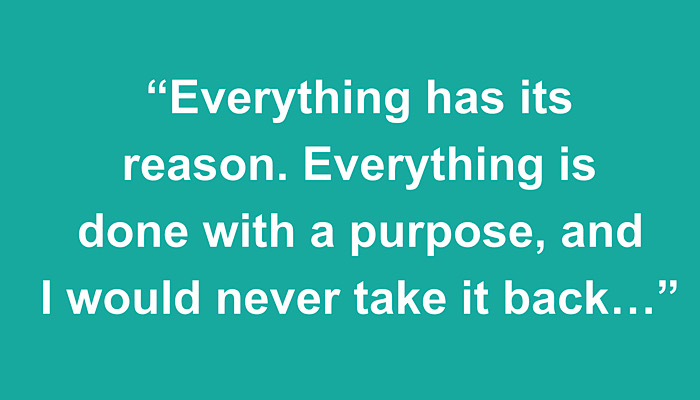
I hear you. There’s only madness to be found by looking back and saying, “Well, I should’ve turned left when I went right that time…” Because who knows where that would’ve led eventually?
Right. You just have to put it out there and let the universe guide you. I firmly believe that if you positively affirm what it is that you want, put it out into the universe, you’ll get it in return. It may take time. It may not look the way you expect it to look. But if you put the energy out there into the universe and to yourself, then the outcomes will happen.
Even without involving God, David, that’s a very spiritual position – is that part of your equation?
Yes, absolutely. I’m not the most religious person, but I am spiritual. And it’s wild how what my mother instilled in me, what my father instilled in me, what my wife and family instilled in me has made me view this as a spiritual journey. Even when I was down in Colombia, it felt almost diplomatic – like a mission… I felt so many things. And for the first time, I really got to understand that maybe my purpose is to bring people and opportunity together by the means of toys…
I mean, when everything happened with the tariffs, this lightbulb went off – but the lightbulb was illuminating the fact that there’s no need to be afraid… There’s a solution. All I’ve got to do is find it. That was illuminated in me; to look for a solution – and it just became crystal clear for me… Even though I had no map to get there!
Wowzers. Well, this conversation is one of the most fundamental I’ve had in a long time. It’s a privilege to talk with you because I think your values always shine through. And to close: you said earlier that, when you were growing up, you always wanted to be the good guy. Well, for me, David, you are: you’re the good guy.
Oh, man! That means a lot. Thank you, brother.
Not at all – thank you my friend.
–
To stay in the loop with the latest news, interviews and features from the world of toy and game design, sign up to our weekly newsletter here




